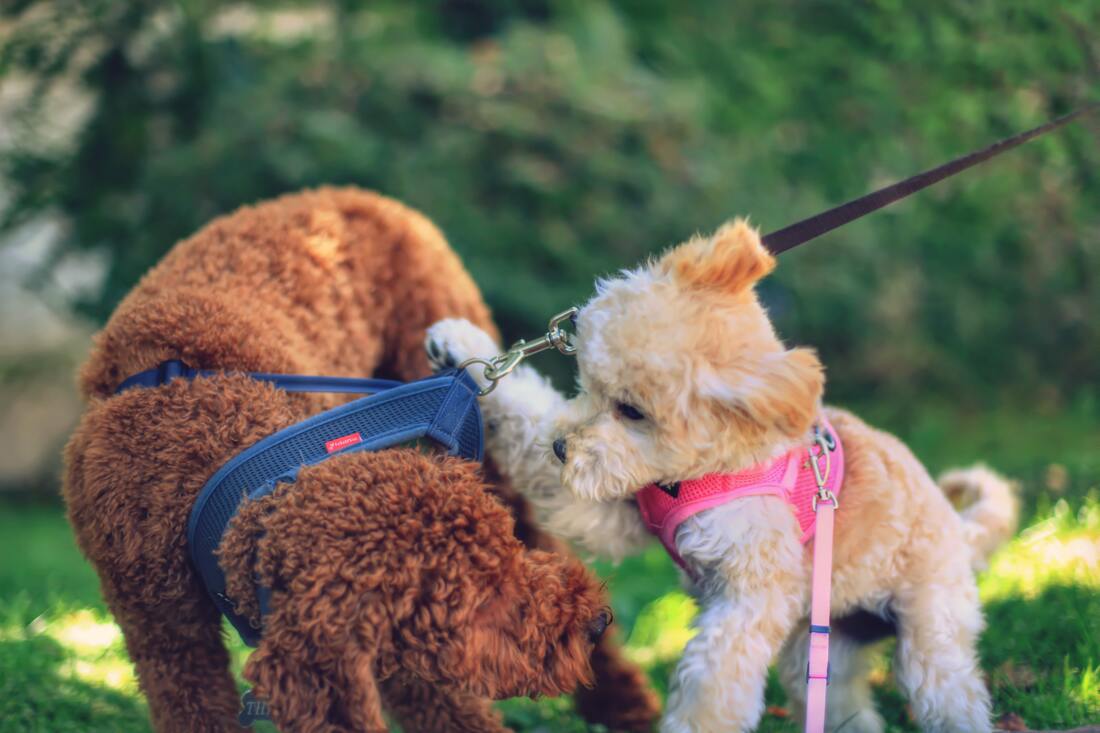HISTORY OF THE STANDARD POODLE
The Standard Poodle is a medium- to large-sized dog. When groomed to show dog standards the body is meant to give off a square appearance. It is approximately the same length as the height at the withers. The skull is moderately rounded with a slight but definite stop. It has a long, straight muzzle. The dark, oval-shaped eyes are set somewhat far apart and are black or brown. The ears hang close to the head and are long and flat. Both the front and back legs are in proportion with the size of the dog. The topline is level. The tail is set and carried high. It is sometimes docked to half its length or less to make the dog look more balanced. Dewclaws may be removed. The oval-shaped feet are rather small and the toes are arched. The coat is either curly or corded.
TEMPERAMENT
The Standard Poodle is proud, graceful, noble, good-natured, enjoyable and cheerful. This highly intelligent dog is one of the most trainable breeds. Some can be trained to hunt. The Standard Poodle is generally lower energy and often calmer than the smaller varieties of Poodles, but will become high strung if you do not give it the proper amount and type of exercise. It is sensitive to the tone of one's voice and will not listen if it senses that it is stronger minded than its owner, however it will also not respond well to harsh discipline. Owners need to be calm, yet possess an air of natural authority. It are not the type of dog to live outside in a kennel, as it enjoys being with its owners and dislikes being alone. It is generally friendly toward strangers, and is excellent with children. The Standard Poodle is good with other dogs. Some can make good guard dogs. Make sure you are this dog's firm, consistent, confident pack leader, providing daily pack walks to avoid separation anxiety and other unwanted behavior issues.
COMMON HEALTH PROBLEMS
A long-lived breed, Poodles are, nevertheless, subject to many genetic diseases. Runny eyes, cataracts and progressive retinal atrophy, which may cause blindness. Allergies and skin conditions are common, possibly due to unskilled use of clippers or allergies to shampoo and/or color reinforcer. Hip dysplasia and ear infections are also common. They are prone to Von Willebrand's Disease. Brown Poodles tend to become prematurely gray. Prone to bloat, so it is wise to feed your Standard 2-3 small meals a day, rather than one large one.
NUTRITION
Your veterinarian can help you determine the ideal weight for your Standard Poodle, as well as the appropriate amount of food to feed. It is a good idea to offer some canned food along with dry, as canned food helps to add important moisture to the diet. In breeds predisposed to the development of urinary stones, like Poodles, a diet that is high in water can help to lessen those risks.
poodles for sale, toy poodles for sale near me by owner, black poodles for sale near me, toy poodles for sale near me under $300, poodles for sale near me ,toy poodles for sale near me ,poodle puppies for sale ,toy poodles for sale , poodle puppies for sale in usa ,tiny poodle poodle puppies for sale ,poodle puppies for sale near me ,miniature poodles for sale near me , miniature poodle for sale, toy poodle puppies for sale near me,toy poodle for sale near me,white poodle for sale,miniature parti poodles for sale,teacup poodles for sale near me,miniature poodles for sale under $500 near me,chocolate poodle for sale,mini poodles for sale near me,toy poodle for sale,black poodle for sale near me,black toy poodle for sale,apricot miniature poodle for sale,purebred poodles for sale,cheap poodles for sale,silver toy poodle for sale,red toy poodles for sale near me,mini poodles for sale,miniature poodle for sale near me,toy poodle near me,toy poodle breeders near me,purebred miniature poodles for sale,chocolate poodles for sale near me,mini poodle for sale near me,toy poodle puppies near me,japanese poodle for sale,miniature poodle breeders near me,white poodle puppies for sale,miniature poodle puppies for sale near me,red poodles for sale
All Rights Reserved 2005 - 2022. Powered By Poodle Puppies
